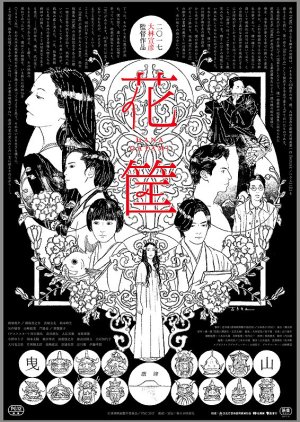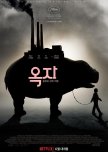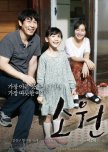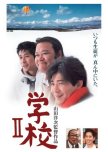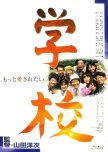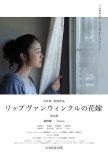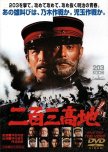
"Art should have no borders"
Hanagatami was a labor of love for Director Obayashi Nobuhiko. He’d conceived the film 40 years before filming it. Right before production he received the news he had stage 4 cancer and he went ahead and began it. This film was surrealistically beautiful, cryptic, and a scathing criticism of the 20th century Japanese war machine.It’s 1941 and seventeen-year-old Toshihiko has returned to Japan from Amsterdam where his mother lives. At his new school he befriends three boys—athletic Ukai, nihilist Kira, and class clown Aso. Toshihiko lives with his aunt and her sister-in-law, the beautiful and dying Mina. The boys are introduced to Mina’s friends, Chitose (Kira’s cousin) and Akine. The youth swim in the ocean, have parties and picnics, attend festivals, and fall in love as befits their age. They also have the sword of war hanging over their heads.
“All you boys will be taken and killed!”
This film set an exhausting pace in the first act. With his extensive use of green screens and special effects some of his choices almost made me dizzy. Toshi was ever exuberant, often to the extreme, which was hard to keep up with. The film eventually settled into a more moderate pace. There were events I wasn’t sure happened or were symbolic. The full moon loomed over the nightly proceedings, bathing everyone in its magical glow. And ghostly military scarecrows came to life and marched while children followed along singing.
“War is hell, but I can’t avoid my own personal hell”
It’s hard for me to call the youth “boys” because in fact the actors were between the ages of 27-42. The girls were closer to their screen ages, most being in their low 20’s. Regardless of their real ages, I had to mentally accept them as teens. They were supposed to be coming of age all the while knowing that they might never make it to manhood. There were homoerotic scenes such as two teens riding a horse naked in the moonlight. And sapphic implied scenes between friends and in-laws. There were plenty of male bare bottoms and women in full nude body suits.
“Seen through the wrong end of a telescope an ordinary scene becomes an ancient history. No, it’s not nostalgia. It’s heartache for all that’s lost.”
Toshi was looking back at his youth in the house his mother and aunt prepared for him. The years had flown by and memory colored in dark nights and filled gaps from old wounds. Friendships were bound by the present and impossible future. Their country had deemed their youth expendable in the name of honor and expansion. There were those who decided if they were being sent to die in a distant land, they could choose a familiar place to end their life. Obayashi drove home every chance he could that Japanese men were born to die in war, a truly useless and tragic thing. At no point was he subtle about his loathing for the 20th century government’s actions and his mourning for the wasted lives and potential. Hanagatami wasn’t an easy film to watch. It was long and maddeningly dream-like. It was also highly creative in showing how teens and their relationships are complex especially when they know they will be forced to grow up and face horrors they can’t escape.
“For Toshihiko, his youth was like a game of hide and seek. It was dark before he knew it and everybody had gone home.”
11 October 2024
Esta resenha foi útil para você?

